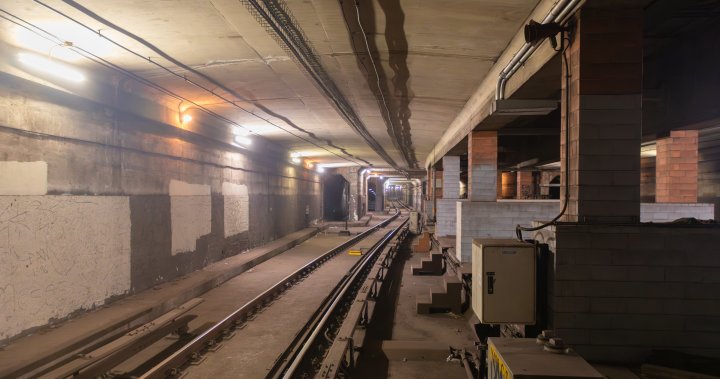The cost of expanding Toronto’s aging transit system has substantially increased over the past few decades, with the price per kilometre of new subway and light rail track rising to more than $700 million. This is comparable to costs in other North American cities but far exceeds the expenses in European cities. The Toronto Region Board of Trade has urged both the Ford government and Metrolinx to adopt lessons from around the world to decrease the cost of constructing new transit as they embark on a significant expansion in Toronto. The organization hopes to bring prices closer to the $300 million per kilometre costs faced by some European cities.
According to a new report titled the Price of Progress, the average cost of building new transit in Toronto remained steady at around $103 million per kilometre from the mid-1970s to mid-1990s. However, costs significantly increased with the completion of projects such as the Sheppard subway and Yonge-University subway extension, reaching around $700 million per kilometre for current projects in Toronto. The Eglinton Crosstown LRT, Ontario Line, and Yonge subway extension are each projected to cost $700 million per kilometre, while the Scarborough Subway Extension will cost roughly $600 million per kilometre. These costs are notably higher than equivalent projects in European cities like Madrid and Paris.
To control costs, the report suggests prioritizing staying on budget by avoiding extravagant station designs and focusing on accommodating local priorities like route or technology preferences. Political choices, such as the decision by the Ford government to build projects underground to avoid traffic disruptions, can also drive costs up significantly. The small size of Toronto’s subway system compared to other major cities necessitates ongoing expansion, but careful consideration of cost implications is essential.
The Ford government’s massive transit expansion across southern Ontario includes projects like the Ontario Line, Scarborough Subway Extension, Hazel McCallion LRT in Mississauga, and a light-rail project in Hamilton. While these initiatives have kept the industry busy and shifted focus away from relying solely on public-private partnerships, challenges with cost overruns and project delays persist. The Ontario Line, for instance, is being broken up into sections to prevent costly mistakes, but the overall success of this approach remains to be seen.
Despite efforts to streamline processes and improve project planning, such as breaking up the Ontario Line into sections, the transit expansion in Toronto continues to face challenges related to cost overruns and delays. The effectiveness of these measures in controlling costs for projects like the Ontario Line, which is now estimated to cost over $27 billion, will only become clear in the coming years. The Toronto Region Board of Trade emphasizes the importance of learning from global best practices to reduce transit construction costs and ensure the efficient and sustainable growth of the city’s public transportation network.


